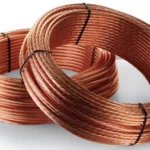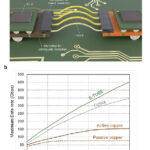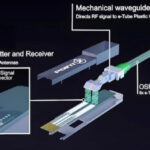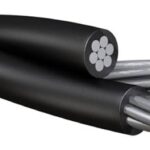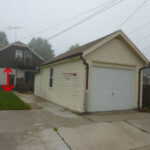
why do battery cables corrode
Battery cables corrode due to chemical reactions between battery acid vapors (electrolyte) and the metal terminals, especially when there's a small leak or poor connection. This corrosion appears as a white, blue, or greenish powder and can disrupt your vehicle’s electrical performance.
If you're seeing build-up around your battery terminals or cables, you’re not alone. In this article, we’ll explain:
What causes battery cable corrosion
Signs to watch for
How to prevent it
What Causes Battery Cable Corrosion?
⚠️ 1. Electrolyte Leakage
Car batteries contain sulfuric acid, which can leak as vapor or liquid, especially near aging or overcharged batteries.
When this acidic mist reacts with the metal terminals (typically lead or copper), it forms corrosive salts—that white or blue gunk you see.
⚠️ 2. Overcharging the Battery
Overcharging causes the battery to vent excess hydrogen gas and acid mist. This speeds up corrosion around the terminals and the connected cables.
🔋 This is especially common with older batteries or faulty alternators.
⚠️ 3. Poor Terminal Connection
A loose or dirty connection between the battery post and the cable can cause sparks or electrical arcing, which also accelerates corrosion through heat and chemical reaction.
⚠️ 4. Copper + Sulfuric Acid Reaction
Many battery cables contain copper strands. When exposed to sulfuric acid or moisture, copper oxidizes and forms blue-green corrosion, sometimes called copper sulfate.
What Does Battery Cable Corrosion Look Like?
Common signs include:
❌ White, blue, or green powdery buildup on cables or terminals
❌ Engine slow to start or no-start
❌ Flickering lights or electrical faults
❌ Burning smell (in severe cases)
Is Battery Cable Corrosion Dangerous?
Yes. It can:
Increase electrical resistance
Prevent your car from starting
Cause battery or alternator failure
Even damage sensitive electronics if left unchecked
How to Prevent Battery Cable Corrosion
✅ 1. Clean Terminals Regularly
Use a wire brush and a baking soda + water mix to neutralize acid.
✅ 2. Apply Terminal Grease or Petroleum Jelly
This creates a barrier against acid vapors and moisture.
✅ 3. Use Anti-Corrosion Washers or Sprays
Commercially available kits help reduce long-term corrosion risk.
✅ 4. Check Battery Health and Charging System
A faulty alternator or old battery can increase gas and vapor leaks.
Final Answer Recap: Why Do Battery Cables Corrode?
Battery cables corrode due to chemical reactions between battery acid and metal terminals, often caused by leaks, overcharging, or poor connections. This corrosion interrupts the flow of electricity and can lead to vehicle performance issues or electrical failure.
Related Questions (SEO Boost)
Q: What removes corrosion from battery cables?
A baking soda and water mix can neutralize acid and clean corrosion. Use a wire brush to scrub terminals.
Q: Can corroded cables drain the battery?
Yes. Corrosion increases resistance, which may cause parasitic drain or charging inefficiency.
Q: Should I replace corroded battery cables?
If cables are badly corroded or brittle, yes—they should be replaced to ensure safe and reliable operation.
Need quality power cables that resist corrosion and wear?
Explore our industrial-grade copper cables designed for durability and long-term performance—even in harsh environments.

